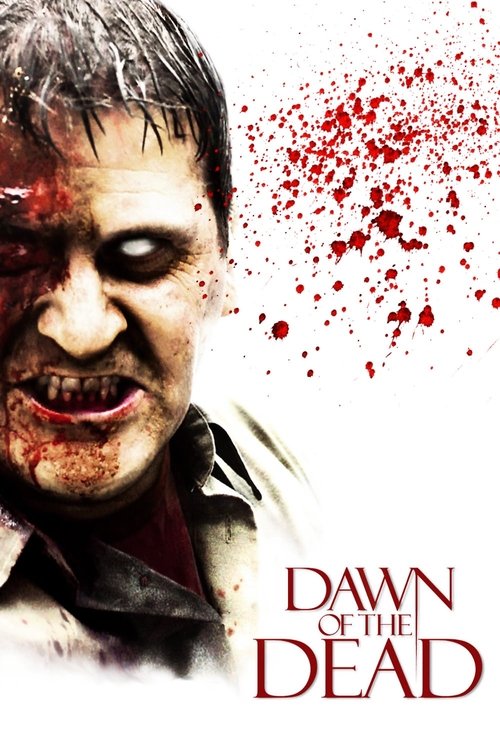
Title: Dawn of the Dead
Year: 2004
Director: Zack Snyder
Writer: James Gunn
Cast: Sarah Polley (Ana),
Ving Rhames (Kenneth),
Jake Weber (Michael),
Mekhi Phifer (Andre),
Ty Burrell (Steve),
Runtime: 101 min.
Synopsis: A group of survivors take refuge in a shopping mall after the world is taken over by aggressive, flesh-eating zombies.
Rating: 7.058/10
Resurrecting Fear: The Visceral Pulse of Dawn of the Dead (2004)
/10
Posted on July 20, 2025
Zack Snyder’s Dawn of the Dead (2004), a reimagining of George A. Romero’s 1978 classic, thrives not as a mere remake but as a bold reinvention that amplifies the primal terror of a zombie apocalypse through kinetic direction and a hauntingly effective setting. Snyder’s debut feature wields a sledgehammer of intensity, transforming the shopping mall a symbol of consumerist excess into a claustrophobic crucible where human fragility and resilience collide. The film’s opening sequence, a breathless descent into chaos as Ana (Sarah Polley) navigates a world unraveling, sets a relentless pace that rarely falters. Snyder’s direction, paired with Matthew F. Leonetti’s stark, handheld cinematography, creates a visceral immediacy, making every zombie lunge feel unnervingly close. The mall, with its sterile fluorescence and hollow opulence, becomes a character itself, a microcosm of society where survival exposes raw human instincts greed, sacrifice, and despair.
James Gunn’s screenplay, while occasionally leaning on stock character archetypes (the stoic leader, the cynical loner), sharpens the narrative with biting social commentary. The survivors’ makeshift community mirrors our own societal fractures, where trust is a currency as scarce as ammunition. Polley’s understated performance as Ana anchors the ensemble, her quiet resolve a counterpoint to Ving Rhames’ brooding intensity as Kenneth. Yet, the film stumbles in its third act, where pacing sags under the weight of predictable betrayals and a slightly rushed resolution that dilutes the tension. The score by Tyler Bates, pulsing with industrial dread, amplifies the film’s heart-pounding rhythm but occasionally overpowers subtler moments of grief or reflection, missing opportunities for emotional depth.
What distinguishes Dawn of the Dead is its refusal to romanticize survival. Unlike Romero’s slower, satirical lens, Snyder’s vision is unapologetically brutal, emphasizing physicality over philosophy. The zombies, sprinting with feral hunger, redefine the genre’s threat, making each encounter a desperate scramble. This choice, divisive among purists, injects a modern urgency that resonates with post-9/11 anxieties about societal collapse. While it lacks the original’s incisive allegory, Snyder’s film excels as a visceral study of human endurance, its mall setting a timeless reminder that our sanctuaries can become our cages. Flawed yet ferocious, Dawn of the Dead remains a landmark in horror for its raw energy and unflinching gaze into the abyss of human nature.
0
0
